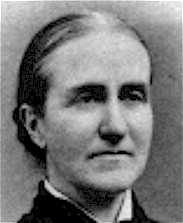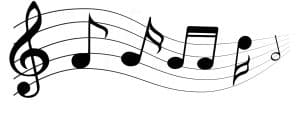As the daughter of a Jazz musician, I often struggled to like church hymns when I was in my early teens. The funerary pace at which most hymns were played, and the (un)written rules that crescendos, brass horns and anything fff were things for “other churches,” made listening to church hymns the least of my favourites. My father was yet patient, and taught me that sometimes you listen with your heart, rather than your ears. This memory came to me when I was searching for a hymn to share in this post. As an adult, I grew to appreciate well-performed hymns, and lyrics that made the hymn more personal: sometimes because of silliness “first the blade and then the ear! Then the full corn shall appear!” (# 94), sometimes because it bore a witness to me: “For he saw the living God” (#26), and sometimes because I needed peace, and the lyrics came to me, “more patient in suff’ring” (#131). Still with all of these favourites, none felt right for this post.
So- I did what I often do when I am stuck for inspiration, and I trolled old Relief Society Magazines. In this, I found a treasure! In the October 1922 Relief Society magazine, there was a lesson titled: Hymns Written By Women. Shazam! I knew this would be inspirational– and it was. This is from my favourite section of that lesson (my emphasis in italics):
“An outstanding feature of hymns written by women is the fact that almost without exception they are filled with a deep sense of gratitude to Jesus, whom they praise as their Redeemer, their Savior from sin, the Author of Eternal Life. This should be a source of satisfaction to all women, in these hours of intellectual keenness, and sometimes spiritual darkness, we are all indebted to those persons who have become witnesses for Christ, in song or story, or through whatever medium the Holy Spirit prompts.
“Another reason why it is natural for women to praise Christ is that he exalted women. Throughout his ministry, he placed her at man’s side, where she belongs. He was throughout his life her champion, her sympathetic adviser and companion. It was she to whom he first revealed himself at the tomb and to whom he gave the commission that she should tell the brethren, his disciples, that the crucified Lord had become the risen Redeemer. The light of truth which Christ brought into the world to dispel the darkness of ignorance and error must always be the most potent of all factors for the exaltation of womanhood.”
In reading these words, I was struck. I wanted to share a hymn about Christ! Yes! He is my champion! So I thought of a song. And another. And another. And… well, I couldn’t decide on just one. So very many hymns about Christ mean so much to me, that I couldn’t choose. So I pondered. Then I listened with my heart. Whether it was my heart, my curiosity or the spirit… my mind kept going back to a hymn that was mentioned in the above Relief Society Magazine lesson that I wasn’t familiar with, titled “The Ninety and Nine.”
I finally decided to look it up in the green hymnbook sitting on my bookshelf. It wasn’t in there. So then I grabbed my hard copy of Our Latter Day Hymns, thinking it must have been removed in 1985. After all, the article was written in 1922. But, no. It wasn’t in there, either. It was time for Sister Google! In a few seconds, I found it! The thing is, I have no idea when or where exactly this song was originally in the LDS hymnbook, or why it was removed; I do know it was suggested as one of the hymns to be used in teaching this particular Relief Society Magazine Lesson in 1922, so it had to be in the church-mandated hymn book at some stage. Regardless, at this moment, I feel like I was led to it. The lyrics are simple and divine, and tune peaceful and inspirational. It was music about Christ, and about seeking after the one.
I pondered this– wondering why such a lovely hymn might have been removed. Then instantly it made sense: The church exclusion policy. It wasn’t until I read the words to this song, and listened with my heart, that I understood why the policy confused me so much. Now I understand. It’s because the church has officially said that it is only interested in the 99, casting off the one. But I am here to say: even if the church policy is to focus on the 99, I will still seek for the one. The lyrics were originally a poem written by Elizabeth C. Clephane, who is said to have written it after her brother returned to the church from spending a season of his life in other pursuits. It does not say if he gave up these other pursuits, what he was doing, or why for a time he chose to not go to church, or if he felt unwelcome for a time, or why he came back. It is not based in judgment; rather, in a sense of loss, and then rejoicing, because the lost one was brought back.
On behalf of my eternal Brother and champion, I will seek after the one. I will include them, even if the church- for this season- will not. This is what He taught me to do. Perhaps it is an irony that this hymn was removed (and example of the one being cast out.) Perhaps it is because it is somewhat similar to Dear to the Heart of the Shepherd. Perhaps I need to do a better job of including, rather than excluding individuals when it comes to church. And perhaps that it why I was led to this hymn.

So – please join me in enjoying this hymn. It might not be in the hymnbook anymore, but my sisters in 1922 taught me that it was important enough to study, and that it would teach me of Christ. I will be ever grateful to these wise women, just as I am grateful for Christ.
The Ninety and Nine
Lyrics By Elizabeth C. Clephane
There were ninety and nine that safely lay
In the shelter of the fold.
But one was out on the hills away,
Far off from the gates of gold.
Away on the mountains wild and bare.
Away from the tender Shepherd’s care.
Away from the tender Shepherd’s care.“Lord, Thou hast here Thy ninety and nine;
Are they not enough for Thee?”
But the Shepherd made answer: “This of Mine
Has wandered away from Me;
And although the road be rough and steep,
I go to the desert to find My sheep,
I go to the desert to find My sheep.”But none of the ransomed ever knew
How deep were the waters crossed;
Nor how dark was the night the Lord passed through
Ere He found His sheep that was lost.
Out in the desert He heard its cry,
Sick and helpless and ready to die;
Sick and helpless and ready to die.“Lord, whence are those blood drops all the way
That mark out the mountain’s track?”
“They were shed for one who had gone astray
Ere the Shepherd could bring him back.”
“Lord, whence are Thy hands so rent and torn?”
“They are pierced tonight by many a thorn;
They are pierced tonight by many a thorn.”And all through the mountains, thunder riven
And up from the rocky steep,
There arose a glad cry to the gate of Heaven,
“Rejoice! I have found My sheep!”
And the angels echoed around the throne,
“Rejoice, for the Lord brings back His own!
Rejoice, for the Lord brings back His own!”






